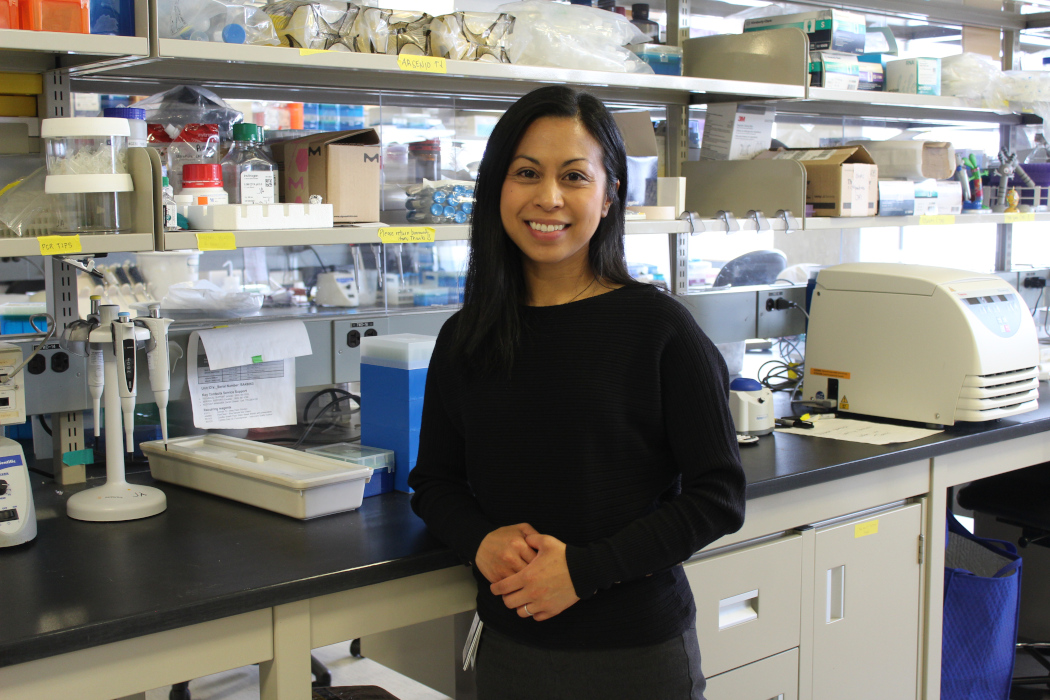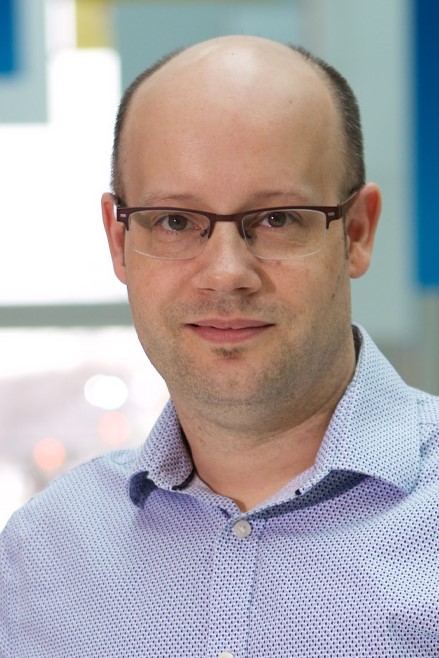
The Winnipeg Foundation funds innovative groundbreaking research at Rady
Two interdisciplinary research teams at the University of Manitoba’s Rady Faculty of Health Sciences have received grants from The Winnipeg Foundation Innovation Fund for cutting-edge projects that will advance research in the areas of brain injury and sepsis.
“These projects exemplify the innovative spirit and interdisciplinary collaboration that are the heart of our research community,” said Dr. Peter Nickerson, vice-provost (health sciences) and dean, Rady Faculty of Health Sciences. “The Winnipeg Foundation’s seed investment in high-risk, high-reward projects allows Rady researchers to tackle some of today’s most pressing health challenges and leverage the funding to secure additional research awards.”
The two grants are part of The Winnipeg Foundation’s $1-million commitment, launched in 2019, to support innovative, collaborative medical research projects in Rady Faculty.
 Properties of blood flow and vascular regrowth in a model of successful brain repair
Properties of blood flow and vascular regrowth in a model of successful brain repair
Dr. Benjamin Lindsey, assistant professor in human anatomy and cell science, Max Rady College of Medicine, is leading a study on brain repair using a small, freshwater fish.
“This generous award by The Winnipeg Foundation will enable our team to be one of the first in the world to take advantage of the highly regenerative zebrafish model to uncover how blood flow impacts timely neurorepair,” said Lindsey.
Adult zebrafish, which can form new blood vessels and regenerate neuronal tissue after traumatic brain injury (TBI), serve as an ideal model for studying vascular and brain repair. “Since mammals and humans have a poor ability to regenerate lost tissue after brain injury, turning our attention to leading models of regenerative medicine, such as the zebrafish, provide a novel approach to learn how vascular dynamics and neuro-regeneration are associated,” Lindsey explained. “The long-term goal is to take these discoveries from the zebrafish, and next test them in pre-clinical mammalian models of brain injury.”
Lindsey’s team, including assistant professor Dr. Jillian Stobart from the College of Pharmacy and Dr. Oleg Krokhin, associate professor in internal medicine, Max Rady College of Medicine, will conduct the first repetitive in vivo imaging study of blood flow in the adult zebrafish brain, identify signaling molecules for vascular regeneration and map the restoration of the blood-brain barrier (BBB).
“This research matters because presently we have little knowledge of how to repair human brain cells following brain injury, concussion or stroke,” said Lindsey. “Finding ways to regrow lost neurons in the brain and re-establish circuits is key to restore quality of life to individuals suffering from neurotrauma.”
 Defining temporal immune T cell profiles and sex differences in sepsis: A bench-to-bedside molecular characterization
Defining temporal immune T cell profiles and sex differences in sepsis: A bench-to-bedside molecular characterization
Dr. Janilyn Arsenio, UM Canada Research Chair in systems biology of chronic inflammation, and assistant professor in internal medicine, is leading a cutting-edge study on sepsis, a life-threatening disease causing numerous deaths and hospitalizations worldwide.
“Sepsis is a life-threatening disease that has long lasting effects on the immune system, yet we still don’t fully understand many fundamental immune mechanisms involved,” said Arsenio. “This is critical to better develop new therapies and/or to give insight on how we can tailor current therapies.”
Sepsis occurs when a polymicrobial infection spreads, triggering an immune response that can lead to organ damage and septic shock. T cells, vital for fighting infections and preventing tissue damage, decrease in number and functionality during late-stage sepsis, weakening the immune system.
The research team, including Dr. Emily Rimmer (internal medicine) and Dr. Suresh Mishra (internal medicine and physiology & pathophysiology), aims to understand T cell behavior in early sepsis to prevent their dysfunction later.
They will also explore differences in immune responses between males and females, noting that females typically fare better in sepsis.
Using blood samples from patients diagnosed with sepsis, the team will analyze T cell changes over time with advanced technologies to examine molecular responses to novel therapeutic intervention and in multiple organs of a preclinical model.
This study could lead to new, sex-specific approaches for diagnosing and treating sepsis, potentially improving patient outcomes globally. “This funding is instrumental to move our research forward to address key unexplored questions in sepsis research,” said Arsenio.






